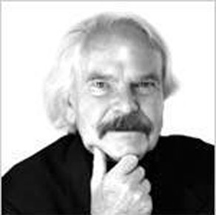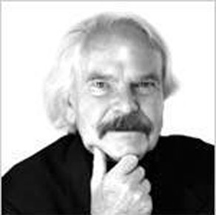By Bernd Debusmann
“Part of the beauty of me is that I’m very rich. So if I need $600 million, I can put $600 million in myself. That’s a huge advantage … over the other candidates.”
So says real estate magnate and reality TV show host Donald Trump, talking about the 2012 US presidential elections.
It’s 18 months to go to November 6, 2012, an eternity in politics, but two things already seem clear: it will be the most expensive campaign ever and the line between the political fringe and mainstream politics will often be blurred.
First, the numbers. The opening of President Barack Obama’s election campaign on April 4 prompted a slew of predictions that he would manage to raise $1 billion, comfortably in excess of the $780 million his supporters provided in 2008. That was a record, more than twice as much as his rival, Republican John McCain (and almost exactly twice as much as George W. Bush in 2004).

None of the potential Republican candidates has yet declared he (or she) is in the running. None can boast to match the “beauty” of Trump, who ranks 488 on Forbes magazine’s 2010 list of the world’s billionaires with an estimated net worth of $2 billion. If he did run, he could afford the $600 million he is talking about. In a series of television interviews, Trump has said he would make a decision in June.
Whether he runs or not, the total candidates will spend for 2012 is almost certain to top the $1.6 billion raised for the 2008 elections. One might expect that sums of that magnitude would prompt grumbles from an electorate grappling with unemployment and foreclosures but the subject of campaign finance reform has rarely stirred widespread interest.
That can’t be said of statements Trump has been making over the past three weeks, when he became the most prominent American to give credence to the views held by the diverse community known as “birthers”.
They are Americans who insist — in the face of much evidence to the contrary — that Obama was born in Kenya, his father’s native country, not the United States, and therefore his presidency is illegitimate.
The logic that underpins this belief implies an intricate intercontinental conspiracy in 1961 to get a Hawaii hospital to certify a birth and two newspapers to publish notices of birth.
“If he wasn’t born in this country, which is a real possibility, then he has pulled one of the greatest ever con tricks,” Trump said on April 10.
He went on to assure television viewers that “this country is going to hell,” the world was laughing at the United States, and the country was no longer respected. Not to worry, though. If he were elected, “I would run a great, great country … They (the world) won’t be laughing if I’m president.”
Among the reasons: “I happen to be smart, I happen to have a lot of common sense, I happen to know what I’m doing.”
Lunatic fringe or mainstream?
Liberal pundits have sprinkled their commentaries on Trump’s advocacy of the birthers with the words “fringe” or “lunatic fringe.” But judging from recent polls, among Republicans these views are not fringe — they are mainstream. A survey conducted by Public Policy Polling in February showed that 51 per cent of Republican voters do not believe Obama was born in the United States. Another poll showed birther support at 42 per cent.
This presents Republican leaders in Congress with something of a dilemma. Since many of the party faithful have doubts over Obama’s place of birth, Republican heavyweights have treated the issue with great caution, more so since a Wall Street Journal/NBC News poll in the first week of April showed Trump tied in second place among potential contenders for the party’s nomination for 2012.
That poll, taken after Trump publicly embraced the birther theory, came as a surprise. Polling experts ascribed his good showing partly to high name recognition. His lavish lifestyle, marriages and divorces, and his changing business fortunes (up-down, down-up) have been tabloid fodder for decades. His show “Celebrity Apprentice” is one of the most widely watched on US television.
Its ratings have gone up since Trump started talking about the president’s birth certificate — one reason why cynics believe that his public pondering of a presidential run is a publicity ploy rather than a desire to restore the world’s remaining superpower to the greatness he says it lost.
If the aim is to profit from publicity, Trump is doing well. According to Nielsen Research Data, the season premiere of his show, in March, drew 7.9 million viewers. That ticked up each time he publicly raised his possible candidature and his doubts over Obama. Last week, viewership stood at 8.64 million. That’s up 9.3 per cent from the debut.
Not bad for a possible presidential candidate. Or an accomplished showman. (Bernd Debusmann is a Reuters columnist. The opinions expressed are his own.) (You can contact the author at Debusmann@Reuters.com).






